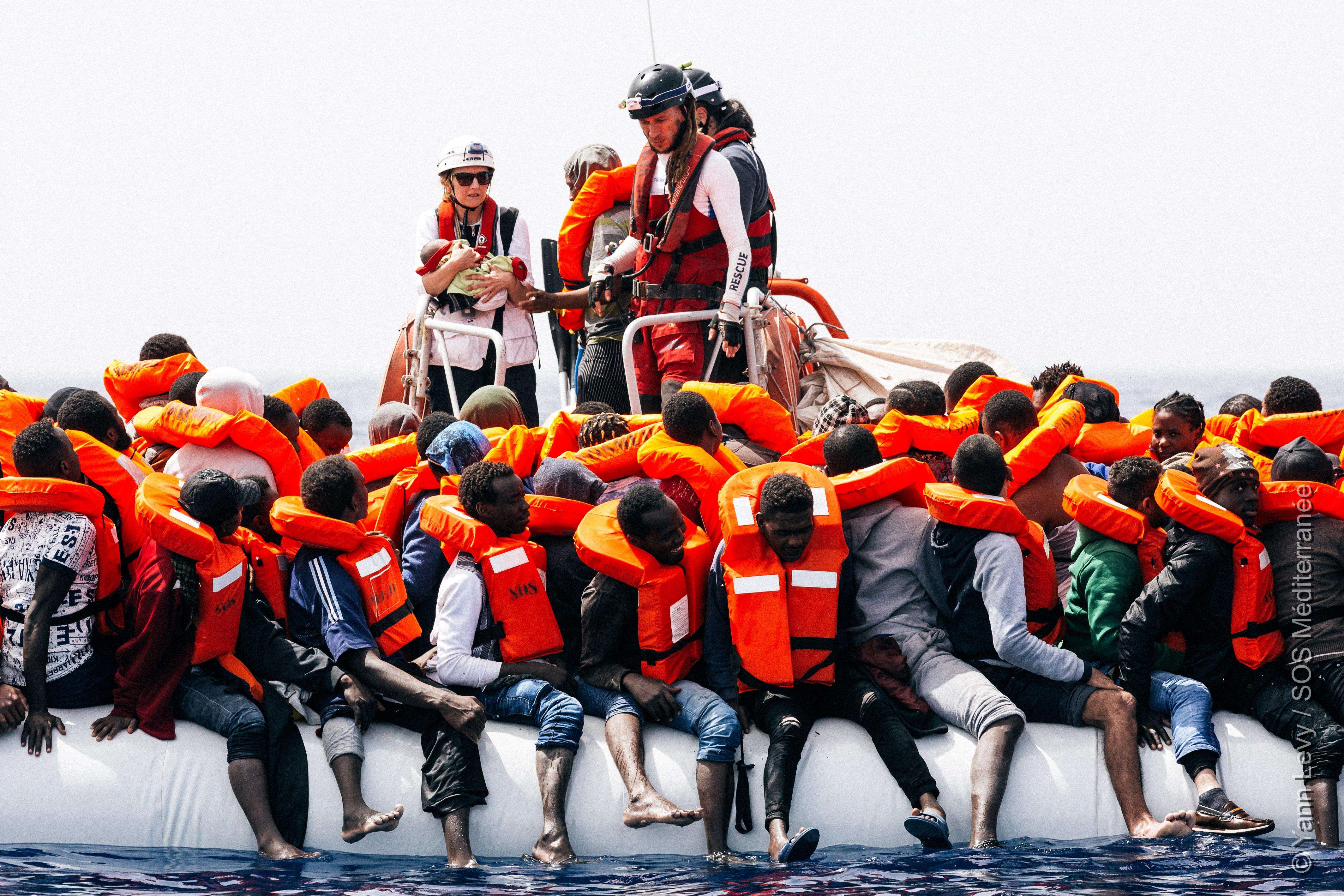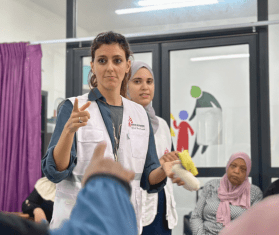NEW YORK, APRIL 1, 2018—On the morning of March 31, the search and rescue ship Aquarius—operated in partnership by MSF and SOS MEDITERRANEE—along with the Libyan Coastguard, were alerted by the Italian Rescue Maritime Coordination Centre (IMRCC) to a rubber boat in distress with an estimated 120 people in international waters 23-24 nautical miles from the Libyan coast.
The rubber boat was first identified by a European military aircraft. The Aquarius was alerted at 10:32 a.m., and arrived on scene first, at approximately 11:00 a.m. The Aquarius was then informed by the IMRCC that the Libyan Coastguard would be in charge of the rescue and the Aquarius was instructed to standby and not engage.
While on standby, the crew of the Aquarius witnessed a deterioration in the situation, with the overcrowded rubber boat taking on water. By 12:45 p.m. MSF and SOS MEDITERRANEE were able to negotiate with the IMRCC, Libyan Coastguard headquarters, and the Libyan Coastguard vessel on its way to the scene to allow the Aquarius to stabilize the situation by giving out lifejackets to all people onboard and to assess their medical conditions.
The MSF nurse onboard the Aquarius fast speed rescue boat (RHIB) identified 39 medical and vulnerable cases—including one newborn, pregnant women, children and their families—who were evacuated to the Aquarius.
In recent months, there have been a number of incidents in which the Libyan Coastguard has reacted violently to the few other remaining humanitarian organizations running dedicated search and rescue activities in the Mediterranean. The security of MSF’s team, as well as the 253 rescued people already onboard the Aquarius from the previous two days of rescues, was paramount during this interaction.
While MSF was able to negotiate the evacuation of 39 vulnerable and medical cases to the Aquarius, out of concern for the safety of the 253 people already onboard from the past two rescues and the Aquarius crew, MSF was unable to complete the rescue.
At 1:52 p.m. the Aquarius was ordered to move away from the scene by the Libyan Coastguard, leaving dozens of people still on the rubber boat. At 2:09 p.m. these people were taken by the Libyan Coastguard back to Libya.
MSF reiterates that Libya is not a safe place, and under no circumstances should refugees and migrants be returned there. MSF continues to call on European Governments to prioritize the safety of refugees and migrants rather than actively enforcing policies of deterrence and containment in Libya. MSF refers to the Dutch minister of foreign affairs who after her visit just last week stated that the situation in the detention centers is inhumane and they should be closed as soon as possible.
Mediterranean: MSF's Search and Rescue Ship Aquarius Evacuates 39 Vulnerable People from Boat in Distress

MEDITERRANEAN SEA 2018 © Yann Levy/SOS MEDITERRANEE



